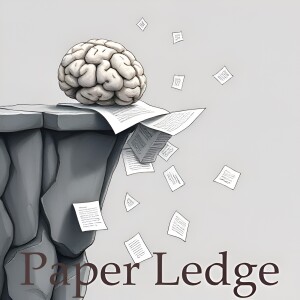

Computation and Language - Disentangling Reasoning and Knowledge in Medical Large Language Models
Hey PaperLedge crew, Ernis here, ready to dive into some fascinating research! Today, we're cracking open a paper that asks: can AI really think like a doctor?
Now, we've all heard about those AI models that can answer medical questions, right? They ace exams like the USMLE, which is basically the medical boards. But are they actually reasoning, or just spitting back facts they memorized? That's the core question this paper tackles. Think of it like this: knowing all the ingredients to a cake isn't the same as understanding how to bake it. You need to know why you add the eggs before the flour, or why the oven needs to be at a certain temperature.
The researchers realized that current tests for medical AI often blend factual recall with actual problem-solving. So, they took 11 existing medical question datasets and used a clever tool – a specialized AI called PubMedBERT – to split the questions into two piles: one testing pure knowledge and the other testing reasoning skills. This PubMedBERT was so good that it was almost as good as a human in deciding which question tested reasoning and which one tested knowledge.
And guess what? Only about a third of the questions truly required complex reasoning! That's like finding out most of a medical exam is just remembering definitions.
So, what happened when they put these AI models to the test, separating knowledge from reasoning? They tested both AI models specifically built for medicine (like HuatuoGPT-o1 and MedReason) and general-purpose AI models (like DeepSeek-R1 and Qwen3).
The results were pretty eye-opening. Turns out, there's a consistent gap between how well these models perform on knowledge-based questions versus reasoning-based questions. One model, called m1, scored much higher on knowledge (60.5) than on reasoning (only 47.1). It's like being a whiz at trivia but struggling to solve a real-world problem. They know the facts, but can't connect the dots.
"Our analysis shows that only 32.8 percent of questions require complex reasoning."To push things further, the researchers even tried to trick the AI models with "adversarial" questions – questions designed to lead them down the wrong path initially. Imagine giving a doctor a slightly misleading symptom and seeing if they still arrive at the correct diagnosis. The medical AI models crumbled under this pressure, while larger, more general AI models were more resilient. This suggests that the medical AI models are relying too much on rote memorization and not enough on actual logical thinking.
So, what's the solution? The researchers didn't just point out the problem; they tried to fix it! They created a new AI model called BioMed-R1. They trained it specifically on those reasoning-heavy examples using a technique called fine-tuning and reinforcement learning. Think of it as giving the AI a personal tutor focused on critical thinking. And it worked! BioMed-R1 outperformed other models of similar size.
They believe that even better results could be achieved by feeding the AI more real-world examples, like actual clinical case reports. They also suggest training the AI to handle misleading information and to "backtrack" when it realizes it's made a mistake – kind of like how a detective re-examines evidence when a lead goes cold. This is like teaching the AI to say, "Oops, let me rethink that!"
So, why does all this matter? Well, for:
- Doctors and medical professionals: This research highlights the limitations of current medical AI and reminds us that human judgment is still crucial. It helps us understand where AI can assist and where it needs further development.
- AI researchers: It points to specific areas where medical AI needs improvement, focusing on reasoning abilities rather than just memorization.
- Everyone else: It gives us a glimpse into the future of healthcare and how AI might one day play a bigger role in diagnosis and treatment.
This isn't about replacing doctors with robots; it's about creating AI tools that can augment their abilities and improve patient care.
Now, a few things I'm pondering after reading this paper:
- If we can successfully train AI to reason more like doctors, how will that change the way medical students are taught? Will they need to focus more on complex problem-solving and less on memorizing facts?
- What ethical considerations arise as AI becomes more involved in medical decision-making? How do we ensure that these AI systems are fair, unbiased, and transparent?
- Could these same reasoning-focused AI techniques be applied to other complex fields, like law or finance?
Food for thought, crew! Until next time, keep learning and keep questioning!
Credit to Paper authors: Rahul Thapa, Qingyang Wu, Kevin Wu, Harrison Zhang, Angela Zhang, Eric Wu, Haotian Ye, Suhana Bedi, Nevin Aresh, Joseph Boen, Shriya Reddy, Ben Athiwaratkun, Shuaiwen Leon Song, James Zou
More Episodes
All Episodes>>Create Your Podcast In Minutes
- Full-featured podcast site
- Unlimited storage and bandwidth
- Comprehensive podcast stats
- Distribute to Apple Podcasts, Spotify, and more
- Make money with your podcast












